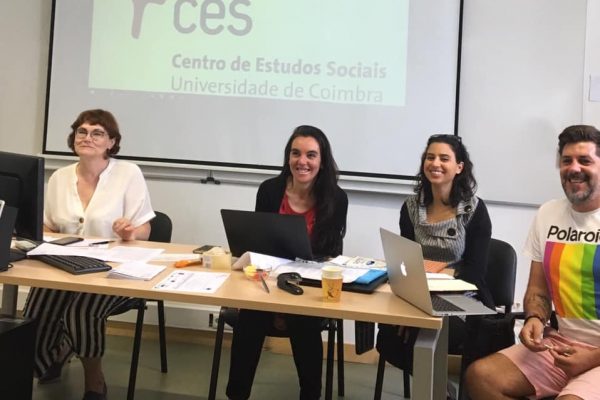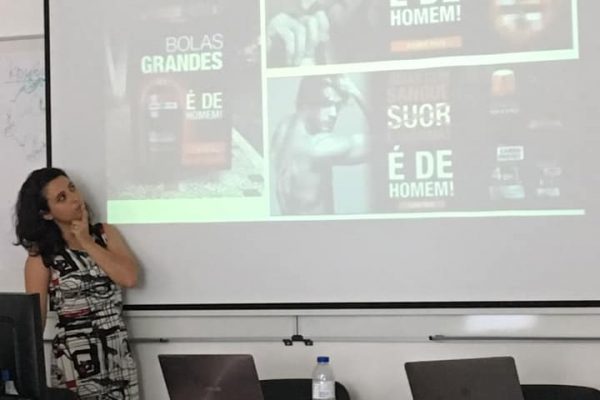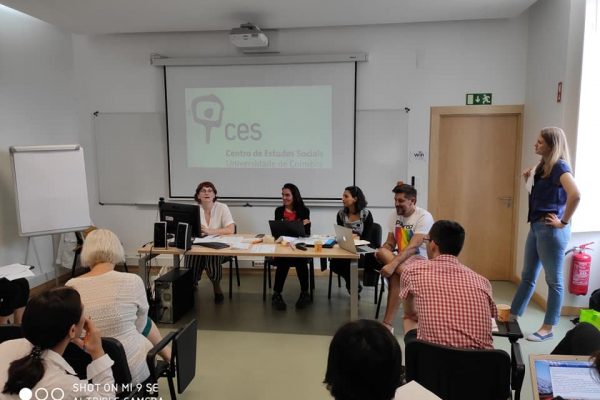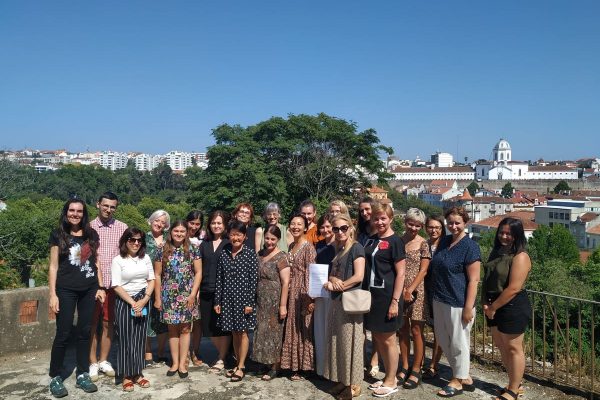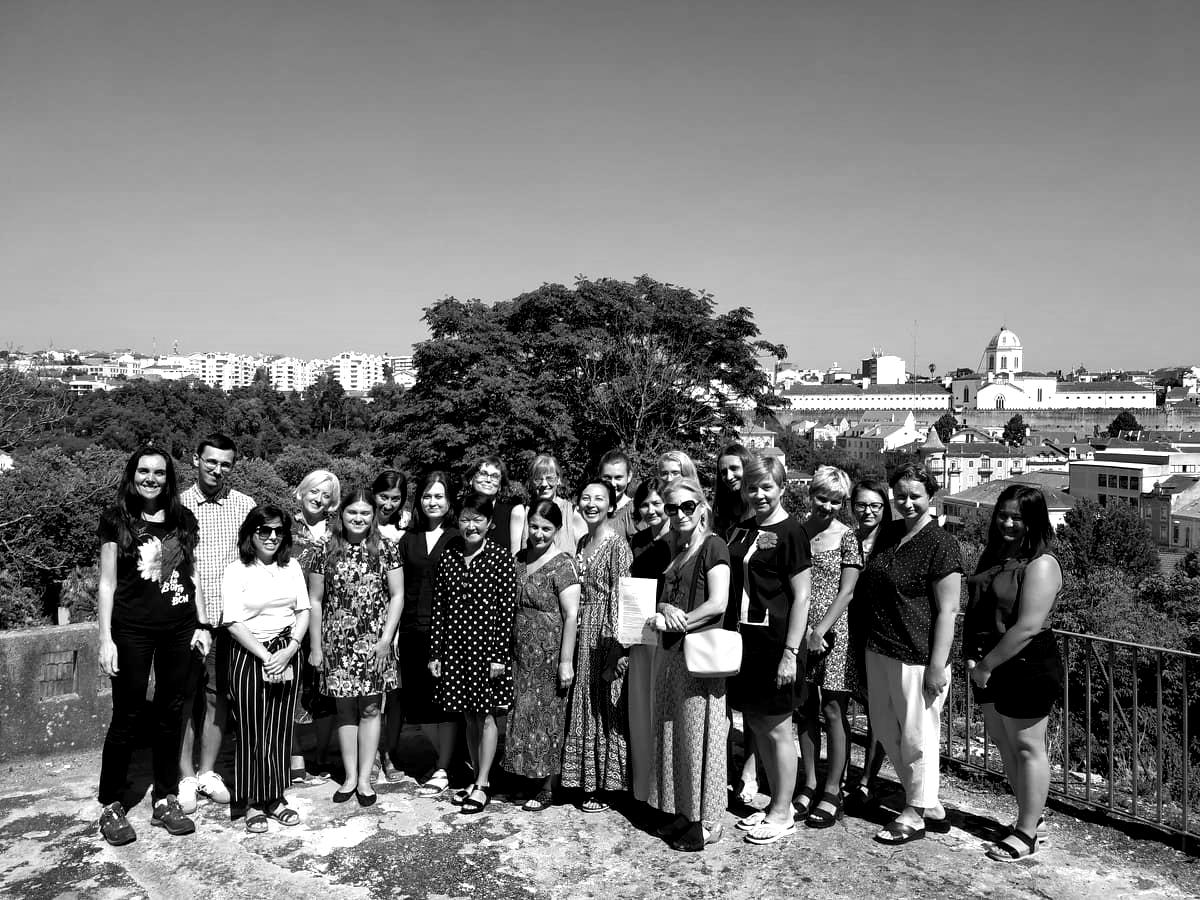
Anti-gender turn in politics and public globally: new forms of organizing against the crackdown on women’s rights in the world
The international meeting “Anti-gender turn in politics and public globally: new forms of organizing against the crackdown on women’s rights in the world” took place at the Centre for Social Studies of the University of Coimbra, from 8 to 19 July, 2019. Organised in partnership with the NGO Promundo-Portugal and the Ivanovo Center for Gender Studies (Russian Federation), the meeting brought to CES about 30 academics, students and activists from the Russian Federation, Ukraine, Armenia, Kazakhstan and Kyrgyzstan.
For two weeks the participants analysed the impact of the growth of populism and extreme-right movements in the rights and well-being of women and LGBTQ people, and the consequent setbacks in the fights for gender equality: dissemination of anti-feminist movements, among which the fight against gender ideology is one of the main expressions; the strengthening of neo-conservative misogynist policies in areas such as reproductive rights, sexual autonomy and domestic violence; contestation to the presence of gender studies in schools and its banishment from several academic institutions.
The meeting was more than just a space of analysis; it was also an opportunity for activists of geographies marked by violence and conflict memories and legacies to exchange experiences, articulate in their struggles, create and strengthen networks and common initiatives. It also highlighted the common conviction that the feminist answer to these challenges necessarily includes educational initiatives and programmes aiming for the promotion of non-violent masculinities (e.g. manuals, workshops, flashmobs); the investment in changes to legislative frameworks (e.g. defending paternity leaves, marriage for same-sex couples, criminalization of sexual assault); attention to sociocultural matters (e.g. publicity, TV); and the fight for medical services and societies free of military conflicts.
The meeting featured a training program on “Illicit Financial Flows: What They Are and How They Influence Households’ Economy” (Olga Shnyrova e Alexandra Kolesnikova / Ivanovo Centre for Gender Studies) and the seminaries “Feminist strategizing in the conditions of anti-gender turn: regional aspects” (Nina Potarska/ Women’s League for Peace and Freedom, Ucrânia, Almut Rochowanski/ PeacebuildingUK, Janette Akhilgova/ ONG “Razvitie»), “Anti-gender turn globally: new agenda of feminism and gender studies” (Anna Temkina/ Universidade Europeia de São Petersburgo) and “Non Violent Masculinities: how to work with men for gender equality?” (Tatiana Moura, Sofia José Santos, Júlia Garraio/ CES, Linda Cerqueira, Milena do Carmo/ Promundo).
The last day was dedicated to the round table “Crossnational strategies and campaigns. Feminist reply to anti gender turn” with the presentation of participants’ projects of analysis of the situation in their countries of origin and proposals for activism.
The organising committee included Tatiana Moura, Júlia Garraio and Olga Shnyrova. The meeting took place in the framework of activities of four current projects in CES: EQUI-X Promoção de estratégias inovadoras para a construção de identidades de género e para o envolvimento de homens e rapazes em modelos de masculinidades não violentas (ref. 776969), PARENT Promotion, Awareness Raising and Engagement of Men in Nurture Transformations (H2020, ref. REC-RDAP-GBV-AG-2017), DeCodeM (De)Coding Masculinities: Towards an enhanced understanding of media’s role in shaping perceptions of masculinities in Portugal (FCT, ref. PTDC/COM-CSS/31740/2017) e (DE)OTHERING – Deconstructing Risk and Otherness: hegemonic scripts and counter-narratives on migrants/refugees and “internal others” (FCT, ref. POCI-01-0145-FEDER-029997). It counted on the support of Oxfam, Rosa Luxemburg Stiftung e.V. (Alemanha) and the Centre for Peacebuilding and Community Development (UK).

